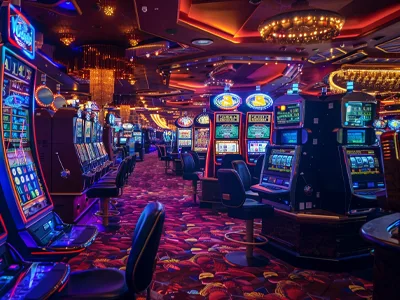An effort is underway to turn the region into a major gambling hub with over 60 casinos
Northern Cyprus is preparing for a major expansion of its casino sector following a recent parliamentary decision to ease regulations on gambling operations. The new legislation, supported by Economy Minister Olgun Amcaoğlu, could double the number of casinos in the region, raising the current total of 32 to potentially more than 60.
Speaking to Kıbrıs Postası TV, Amcaoğlu emphasized the economic benefits of the move, stating that the expansion could create at least 28,000 new jobs. With the tourism sector already employing around 40,000 people, he believes this increase could significantly strengthen the region’s service economy. Drawing comparisons to Malta, he said the government aims to make the casino industry a central pillar in driving growth.
Under the revised rules, planning permissions for new casinos will be easier to obtain, and geographic restrictions have been relaxed. Casinos can now operate closer to urban centers, including within 100 meters of schools. Another notable change is the adjustment of hotel requirements; establishments seeking to host a casino must now have at least 750 beds, up from 500.
Controversially, the long-standing ban preventing Turkish Cypriots from entering casinos has been reduced to a civil infraction punishable by a €50 fine. Critics argue this change weakens efforts to address gambling-related harm among local residents. Opposition MP Fikri Toros described the fine as a “symbolic penalty” that could lead to increased gambling participation among citizens.
Other parliamentarians expressed alarm over possible risks of money laundering, particularly considering the area’s non-recognition status in international law. MP Doğuş Derya sounded a warning that casinos would become a money laundering black hole, citing earlier problems with offshore banks in Northern Cyprus.
The moves follow wider discussions of regulation and transparency in the region’s expanding gambling market, especially in comparison with the state-regulated Greek-Cypriot south, where casinos are under international scrutiny.

